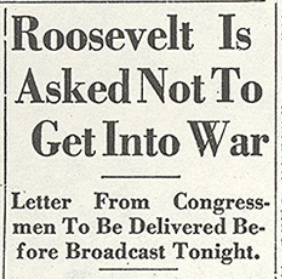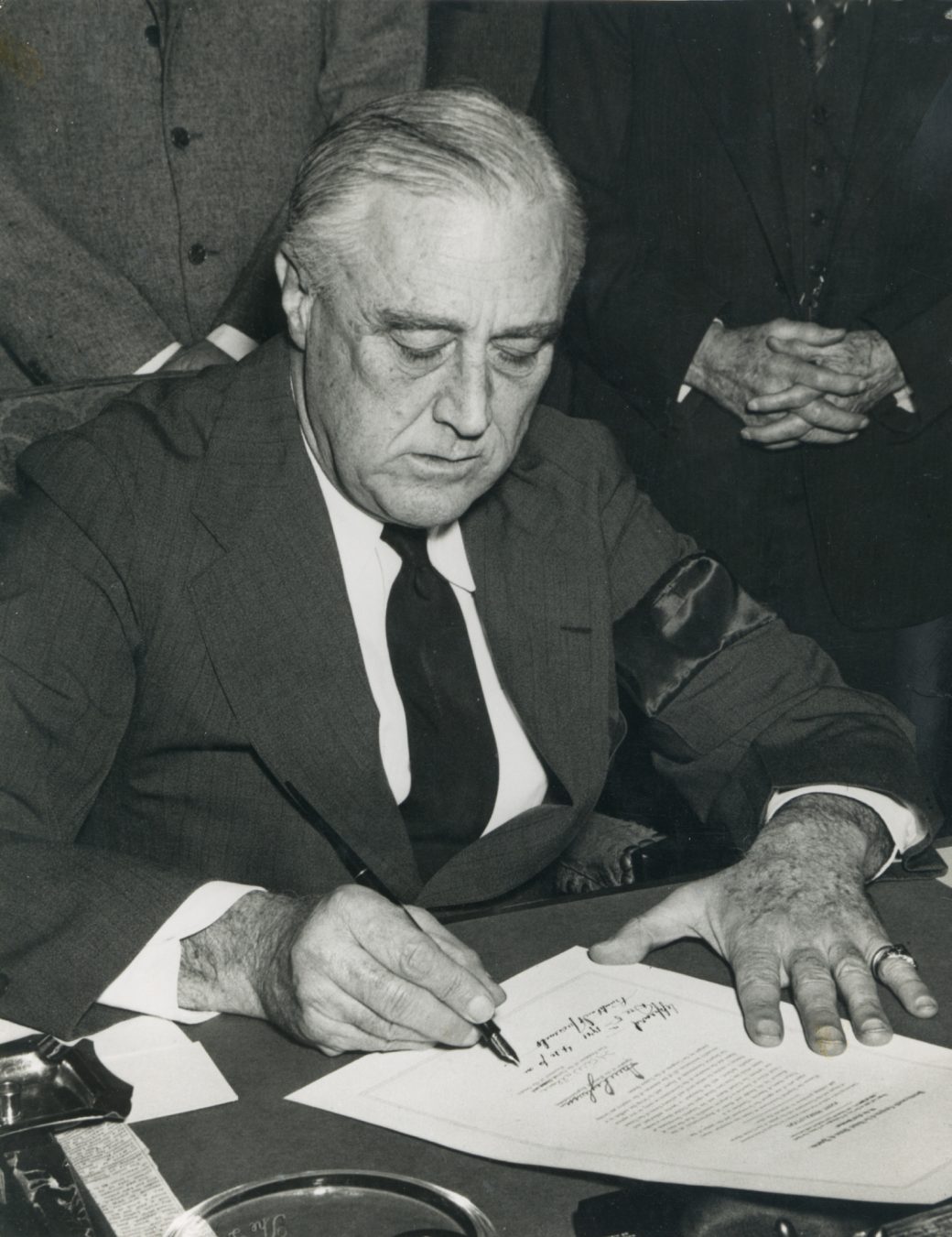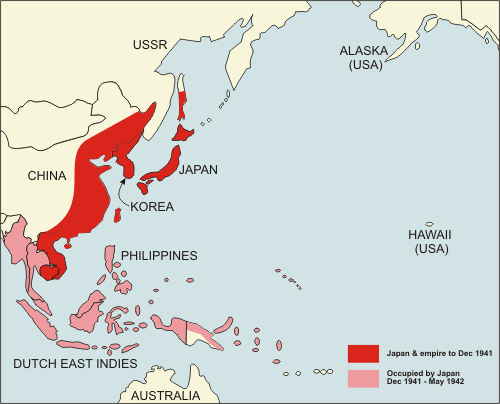The Pacific Theater

The "Anti-War Sentiment"
Franklin D. Roosevelt Presidential Library
“This nation will remain a neutral nation, but I cannot ask that every American remain neutral in thought as well…Even a neutral cannot be asked to close his mind or his conscience."
- Franklin D. Roosevelt

Newspaper about Anti-War Sentiment | Franklin D. Roosevelt Presidential Library
During much of World War II, the United States decided to not intervene with any country and stayed neutral. Meanwhile, Japan saw the U.S. as a threat to their expansive control in the Pacific.
"A Date Which Will Live in Infamy"
- President Franklin D. Roosevelt
"Japan launched a surprise attack on the United States Pacific fleet at Pearl Harbor, Hawaii, on December 7, 1941... In response, the United States declared war on Japan."
"World War II in the Pacific". United States Holocaust Memorial Museum
"The Japanese plan was simple: Destroy the Pacific Fleet. That way, the Americans would not be able to fight back".
"Pearl Harbor", HISTORY
"What an uproar! Japan’s Imperial Forces got things off to a quick start with one splendid strike then another in historic surprise attacks on Pearl Harbor".
- Japanese Announcement of the Attack at Pearl Harbor
"On December 8, Congress approved Roosevelt's declaration of war".
"Pearl Harbor", HISTORY

"President Roosevelt Signs the Declaration of War against Japan" | The White House Historical Association
World War II in the Pacific was known as the Pacific Theater. While some Japanese were jubilant of the Pearl Harbor attack, others became unsure about their dominance after sparking a conflict with another powerful country.
"I fear all we have done is to awaken a sleeping giant and fill him with a terrible resolve."
- Japanese Admiral Isoroku Yamamoto

"The Japanese Advance"
"Pacific War", Britannica
"In December 1941, Guam, Wake Island, and Hong Kong fell to the Japanese, followed in the first half of 1942 by the Philippines, the Dutch East Indies (Indonesia), Malaya, Singapore, and Burma."
"World War II in the Pacific". United States Holocaust Memorial Museum
"It seemed like our forces were unstoppable."
- Japanese Naval Radioman Tsuriji Akikusa

"The Japanese Conquest of the Pacific December 1941- May 1942" | Anzac Day Commemoration Committee
At the start of U.S. involvement, the Japanese Empire controlled most of the Pacific. Japanese confidence was rooted in their dominance, and many were fearless of the Americans.
